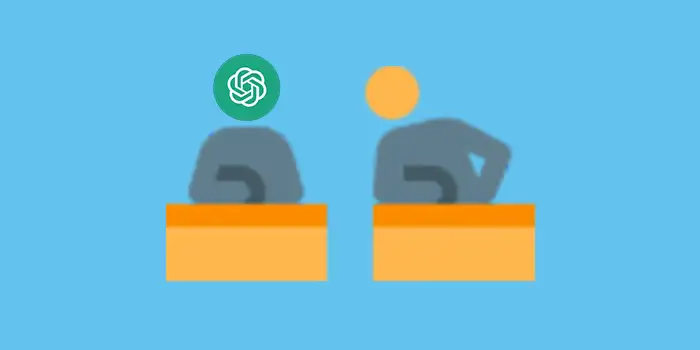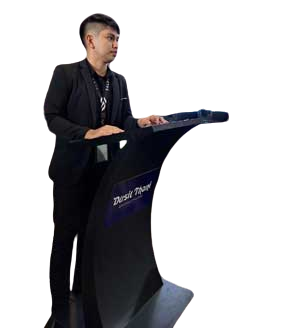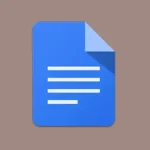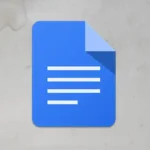As a big fan of ChatGPT, I have seen how it affected the learning landscape in schools. You won’t believe what’s been going on lately in schools around the world just because of this AI language model. Things started to get a little complicated because people are still adapting.
Using ChatGPT, or seeking assistance from AI technology is not cheating. It is a tool to provide information and answer questions. Context determines ChatGPT’s appropriateness and acceptability. If you’re using ChatGPT to complete academic assignments or tests that require your independent effort and knowledge, it can be considered cheating.
In this article, we’re going to dive into the intriguing topic of how using ChatGPT can be considered cheating.
Is Using ChatGPT Cheating?
So the big question that we have right now is: “Is using ChatGPT cheating?” I’m here to spill the tea and share my thoughts on this matter because I’ve been using and experimenting with this AI chatbot for a very long time already.
Now, I want to start with the basic. Using ChatGPT, or seeking assistance from AI technology, is not inherently cheating. Think of it as having a trusty tool that can provide information and answer questions. Pretty cool, right?
But wait, there’s a twist! Context is the key that unlocks the truth. You see, the appropriateness and acceptability of using ChatGPT depend on the situation and purpose. It’s like using a special gadget at the right time and place. Let me explain it to you further.
In academic settings, like schools or colleges, we often have assignments or tests that require our independent effort and knowledge. These tasks are like challenges that test our learning and understanding.
If we rely solely on ChatGPT to complete these assignments or tests, it can be considered cheating. You’re like using a cheat code in a video game instead of leveling up through your hard work and brainpower.
In the grand game of life, education is our journey, and the challenges we face are our growth opportunities. That’s why we must not rely solely on ChatGPT because we also need to put in the work and develop our understanding.
But hold on! Our journey doesn’t end there. ChatGPT extends beyond the boundaries of academia. It accompanies us in our everyday lives, where we encounter a myriad of questions and seek information.
In these situations, using ChatGPT cannot be considered cheating because we encounter endless scenarios where we need quick access to information or assistance.
It could be understanding a concept or finding a new recipe. ChatGPT can be an invaluable tool in these moments because you’re like having a knowledgeable friend at your side.
In these non-academic situations, the purpose shifts from strict evaluation to personal growth and enrichment. We’re not bound by rigid academic guidelines or the need to demonstrate independent effort.
Instead, ChatGPT becomes a tool that enhances our understanding, sparks our curiosity, and broadens our perspectives.
In the end, whether using ChatGPT is cheating or not depends on how we wield this powerful tool. If we rely on it too much to bypass the journey of learning and understanding, it becomes a hindrance to our personal growth.
However, if we embrace it as a resource to support our exploration and expand our knowledge, it becomes a catalyst for learning and discovery.
Should ChatGPT be Allowed in Schools?
This is a question that gets my gears turning because this is a hot topic that’s sparking debates all around the world.
In my opinion, ChatGPT can be useful in schools, but we need to consider a lot of important factors. Students can access a vast amount of information and gain quick insights when using ChatGPT.
If they are studying solar systems, history, or language arts, it can help them understand complex concepts because ChatGPT can provide a very concise answer.
But here’s a thing, ChatGPT should not replace our efforts and engagement in school. This AI chatbot can be a sidekick in our learning journey but we should still use our effort to learn.
The common education system today is they want to improve our critical thinking, problem-solving, and creativity. If we rely too much on ChatGPT to answer our assignments or exams, it will surely a students’ growth. You’re like using training wheels on a bike forever and never learning to balance on your own.
In my educational journey, I can still remember encountering such math challenges and they were very complicated. I summoned my determination and tackled them head-on. I did my best to analyze the problem, apply different strategies, and experiment with various approaches.
And you know what? When I finally arrived at the solution and got the correct answer, it was an exhilarating moment of personal triumph.
During that time, ChatGPT wasn’t available to assist me, but even if it were, the overwhelming sense of pride and accomplishment I experiences couldn’t be replicated by relying solely on ChatGPT or any other external tool.
I believe that allowing ChatGPT in schools should come with some guidelines. Teachers can encourage their students to use this AI chatbot for research, exploring new ideas, or clarifying concepts.
If it is going to be used that way, I’m that it can be a resource to spark discussions and inspire deeper learning. There must always be a balance!
We shouldn’t become overly reliant on ChatGPT and forget to develop our knowledge and understanding. Just like superheroes need to train their powers, students also need to hone their skills and sharpen their minds.
Lastly, the decision of whether ChatGPT should be allowed in schools requires careful consideration because embracing technological advancements can be also beneficial when done responsibly.
How does using ChatGPT affect Academic Integrity?
As a fan of AI technology, I know that using ChatGPT can have a big impact on academic integrity, which is like following the rules of being honest and fair in school. I’ll describe it using words that everyone can comprehend.
Let’s say you’re doing a science project, and you’re supposed to come up with your ideas, do your research, and create a report. But instead of doing all that, you relied on everything to ChatGPT giving you all the answers. It even created the report for you.
Now, it might seem easy and tempting to use ChatGPT, but it’s not really fair because you’re not using your effort or your brain skills to do the work.
I have seen a lot of students already using ChatGPT to complete all of their school assignments without putting in too much effort. They rely on the AI chatbot to give them all the answers then they will just copy and paste without understanding the answer.
Academic integrity is the practice of completing your job, expressing your thoughts, and giving credit to others when you do so. Every time you use ChatGPT, to finish your assignments, it can be a problem because you might be plagiarizing someone else’s work.
You feel pleased with what you have done when you learn how to put effort into your task. You can learn new things and build your knowledge. It also feels good to figure out things on your own.
With the development of ChatGPT, I’m very sure that lots of students will be dependent on this AI. I hope students will realize that to improve their thinking, they must use their brains and not rely on everything to ChatGPT.
How to Address ChatGPT Usage in Schools
Addressing ChatGPT usage in schools requires a comprehensive approach that promotes responsible and ethical use of the technology.
Here are some steps that I believe should be taken so that students will be responsible for using this AI language model:
- Educate Students: Clearly define the rules and regulations for using ChatGPT in academic settings. Inform pupils of the value of their work and expertise, independent thought, and critical analysis.
- Emphasize Academic Integrity: Inform students of the fundamentals of academic honesty, such as accurate citation, avoiding plagiarism, and moral research procedures. Encourage them to cite all sources, whether created by people or artificial intelligence.
- Set Boundaries and Expectations: Establish guidelines for using ChatGPT for projects, assignments, and testing. When autonomous work is necessary, make it clear when and how ChatGPT can be used. Encourage kids to ask teachers for clarification if they have any questions about how to use technology properly.
- Foster Critical Thinking: Encourage your pupils to think critically about their ChatGPT replies. Teach students to analyze and cross-check data from many sources to guarantee its veracity and correctness. Encourage them to challenge the AI’s provided answers and exercise independent thought.
- Provide Alternative Learning Experiences: Make interesting and educational activities and encourage teamwork and problem-solving. Instead of just depending on ChatGPT-generated information, provide projects that encourage students to apply their ideas and demonstrate their learning in original ways.
- Collaborate with Educators and Administrators: Develop regulations and guidelines that address the usage of AI technologies like ChatGPT in the classroom by working with educators, administrators, and policymakers. To remain up to date on the most recent developments and best practices, encourage conversations and professional development opportunities.
- Promote Responsible Digital Citizenship: Inform pupils about the larger effects of technology use, such as security, privacy, and ethical online conduct. Stress the need of acting with respect, morality, and responsibility when using technology.
The list of strategies that I provided will surely create an environment that supports the responsible use of ChatGPT in schools. It is always important to strike a balance between leveraging the benefits of technology and nurturing the development of independent learners who can think and create with their unique abilities.
Final Thoughts
Exploring the question of whether using ChatGPT is considered cheating has revealed a complex landscape where context and responsibility have played a pivotal role.
Using ChatGPT itself is not inherently cheating, it is the way we choose to use it that determines its impact on our learning and academic integrity.
We must remember that education is more than just acquiring the correct answers. It is also about personal development and the acquisition of useful skills.
We must never let ChatGPT overshadow our abilities and effort.










